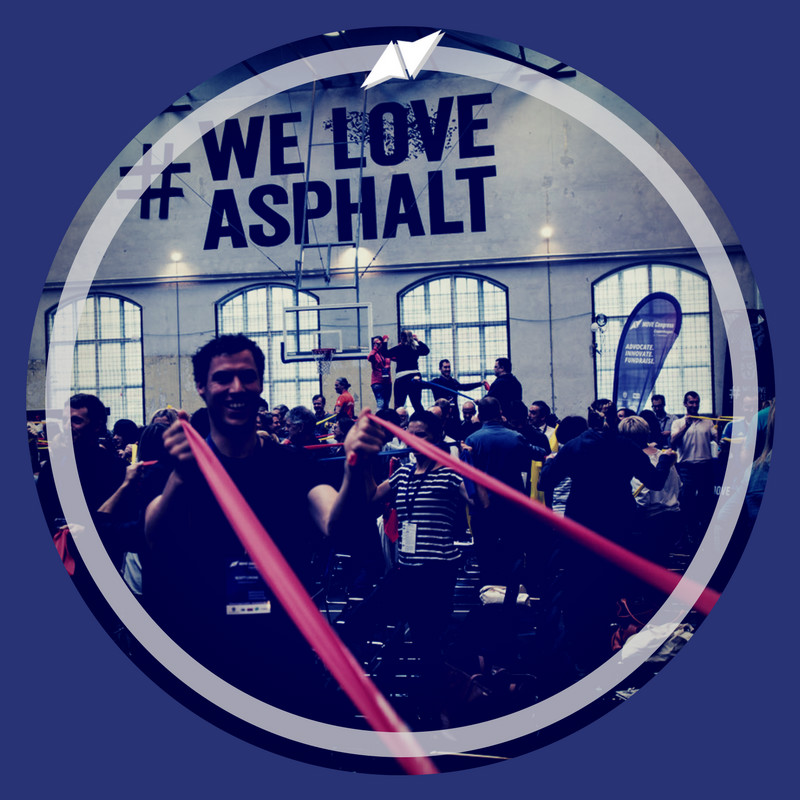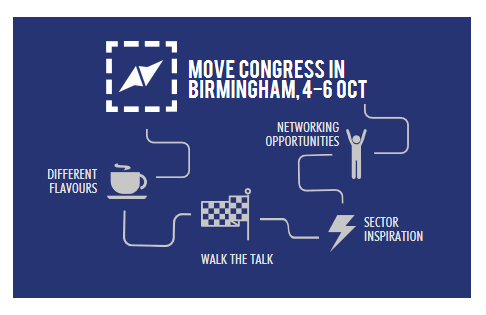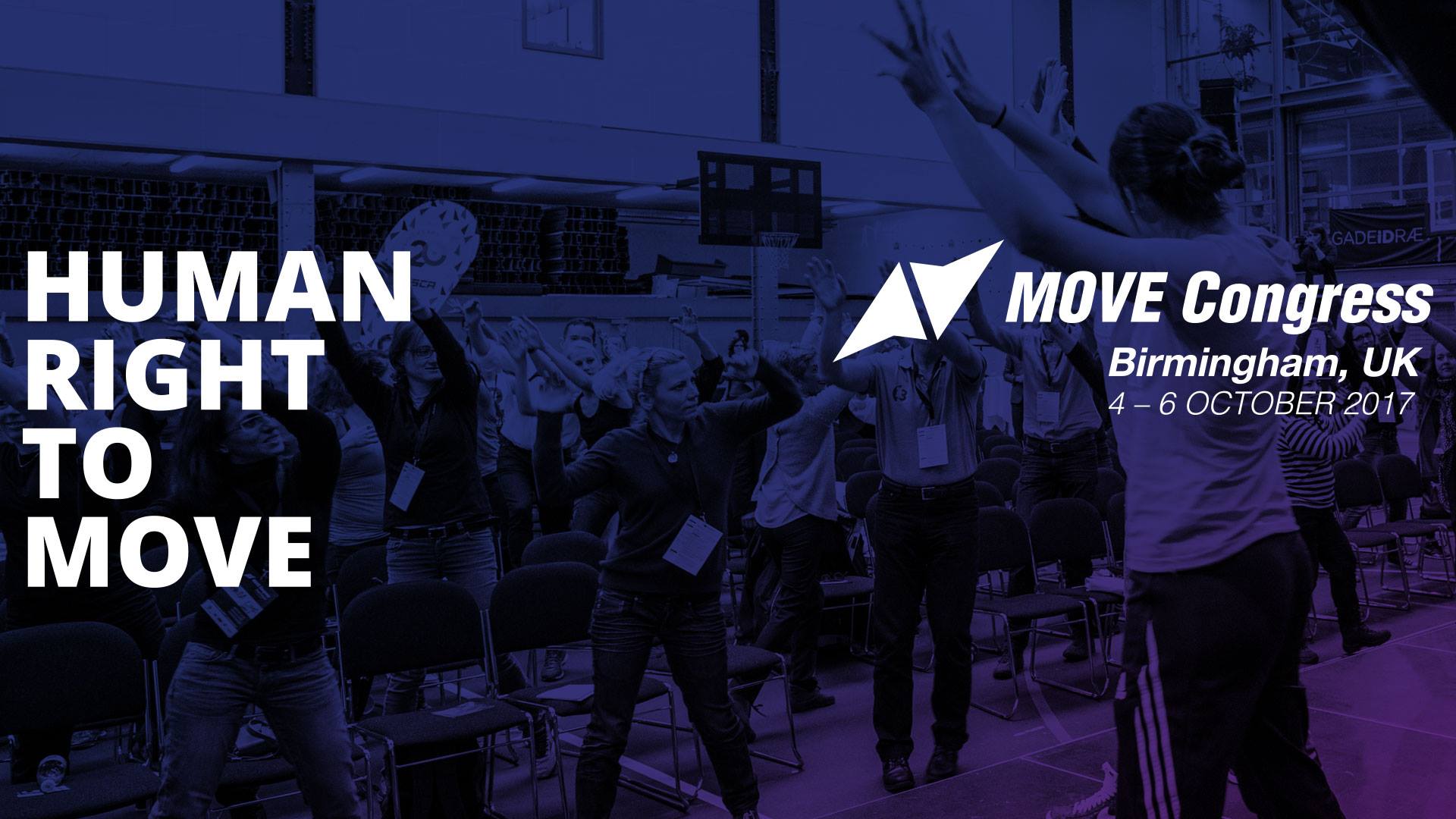Do physical activity promoters need to find more evidence to support their case for support and other advocacy efforts? Absolutely, says Dr Richard Bailey, Senior Researcher at the International Council of Sport Science and Physical Education (ICSSPE). But it has to be quality evidence from experts, and a collaborative effort is needed to get it noticed.
Bailey gave an entertaining and eye-opening presentation on the power of advocacy at ISCA’s Moving Europe – Moving People conference in Ljubljana last year. This October at the MOVE Congress in Birmingham, the subject of advocacy will be brought to the table again in the MOVEment Spaces: Reframing Urban Spaces for Physical Activity workshop on 5 October.
But let’s revisit Bailey’s presentation for a moment and find out what keeps him “awake at night with anger”.
It’s fake evidence.
(It’s also Brexit, but you’ll need to watch the video to hear more on that.)

And like fake news, fake evidence hasn’t always needed the internet to go viral. Myths that we only use 10% of our brains, we need to drink eight glasses of water a day for health, that different sides of our brains determine how we should be taught at school, among many others, are urban legends that gain momentum despite the lack of real evidence behind them.
It can be difficult to spot the blurred line between curated pseudo-science and real evidence, and Bailey admits it’s hard for physical activity advocates like us to compete with the noisy nonsense.
The key to making our own messages stick, he says, is to find easy, memorable and genuine facts, and work together to communicate them well.
“We have to think seriously about multi-sectoral work, because physical activity cuts across education, health, business, policy, economics, local communities and so on.”
As physical activity promoters, we know we have a compelling case for support, but this isn’t enough.
“If we start becoming complacent, then we’re going to have to settle for crumbs off the table when we really deserve much more,” Bailey says.
Don’t miss the MOVE Congress 2017’s session on partnership and cross-sector collaboration Together we can achieve almost anything! on 6 October – mix with other experts in your field and get your messages noticed.
[gdlr_button href=”https://www.movecongress.com/register-2017/” target=”_self” size=”medium” background=”#000000″ color=”#ffffff”]REGISTER NOW[/gdlr_button]
See Richard Bailey’s full presentation from Ljubljana here and follow the slides on our SlideShare page.
Article by Rachel Payne (ISCA), photo by Flare Visuals
Experts – should we be listening to them? YES. That’s why they’re experts
Do physical activity promoters need to find more evidence to support their case for support and other advocacy efforts? Absolutely, says Dr Richard Bailey, Senior Researcher at the International Council of Sport Science and Physical Education (ICSSPE). But it has to be quality evidence from experts, and a collaborative effort is needed to get it noticed. Bailey gave an entertaining and eye-opening presentation on the power of advocacy at ISCA's Moving Europe - Moving People conference in Ljubljana last year. This
8 ways to meet your next sport-for-all partner at the MOVE Congress
How many likeminded professionals from different countries and continents can you meet at the MOVE Congress? Probably hundreds. How many meaningful and lasting connections can you form at the MOVE Congress? That is up to you! However, we’ve gathered some ideas to make sure that your business card exchanging moves will be the grooviest: 1. Warm up with the programme! The 8th MOVE Congress runs on four tracks, namely: MOVEment Spaces – Reframing Urban Spaces for Physical Activity; Removing Barriers – Getting
Have you experienced a MOVE Congress before?
If you were in Rome with us in 2014, see if you can spot yourself in this video. If you've never been to the MOVE Congress, here is a taste of one of the most active conferences in the world! (Fun fact: The song was created by our participants.) This video is a collection of memories from the 6th MOVE Congress in Rome in 2014. It is a collection that highlights the movement, vibrant atmosphere and creative sessions and workshops that characterise
Last chance to get your MOVE Congress 2017 early bird ticket – so what’s stopping you?
There’s only one step separating you from the MOVE Congress 2017 – a conference pass that will give you access to all main events. Join the early bird league and secure your pass now. [gdlr_button href="https://www.movecongress.com/register-2017/" target="_self" size="medium" background="#000000" color="#ffffff"]Register now[/gdlr_button] ISCA and our partners of the MOVE Congress 2017, Birmingham City Council, SportEngland, StreetGames UK, the Wild Network and Youth Sport Trust, have invited stakeholders and sport-for-all organisations to engage and find solutions to the growing trend of physical inactivity. We’ve gathered
Why your boss should send you to the MOVE Congress 2017
If you’re a professional working in any sector, you’ll surely want to be on top of the latest trends and brush shoulders with experts in your field. Conferences are a key way to gather inspiration from peers and thought leaders. Florence Mondin, Policy Officer from the Sport Unit of the European Commission, tells us that EU staff are no exception. They might be the ones that many community and national sport organisations look up to for support, but they are also
It’s our human right to MOVE – so what’s stopping us?
8th MOVE Congress focuses on the human right to MOVE. We, humans, have made it difficult to be active. It's easy to invent new barriers rather than find solutions to the existing problems. This MOVE Congress is about to change that. Inviting the leading organisations and people to Birmingham, we will look for solutions on how to enable our fellow citizens to start moving again. Become one of the early birds and join the MOVE Congress in Birmingham, UK.
Find your MOVE and find your way to other physical activity promoters at the MOVE Congress 2017
The MOVE Congress is the one of the highlights on the sport for all calendar. The MOVE Congress in Birmingham, UK, from 4-6 October 2017 will gather stakeholders in physical activity promotion from all over the world, making it one of the best idea hubs for tackling the inactivity crisis. The theme for 2017 – “Human Right to MOVE” – will dive into the challenge of breaking barriers and reorganising the urban spaces around us to help our citizens become
Do the most restricted members of our society still have the right to MOVE?
We all have the Human Right to MOVE. For some of us, this right gets restricted by the way our lifestyles have developed – either by sitting for hours at work, by machines transporting us around, or by the busy urban settings we live in. But what about those who are completely restricted – do prisoners have the right to move and participate in recreational physical activity, for example? This question is bound to prompt a debate wherever it is asked.
It’s our human right to MOVE – so what’s stopping us?
8th MOVE Congress focuses on the human right to MOVE. We, humans, have made it difficult to be active. It's easy to invent new barriers rather than find solutions to the existing problems. This MOVE Congress is about to change that. Inviting the leading organisations and people to Birmingham, we will look for solutions on how to enable our fellow citizens to start moving again. Become one of the early birds and join the MOVE Congress in Birmingham, UK.




